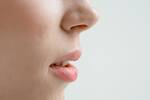
03 Aug Nose Pickers More Likely to Pick Up Covid
MedicalResearch.com Interview with:
Ayesha Lavell MD
Universiteit Amsterdam, Department of Internal Medicine,
Amsterdam Institute for Infection and Immunity
Amsterdam, the Netherlands
MedicalResearch.com: What is the background for this study?
Response: Nose picking is so common in the overall population (91% in a survey study in the US, performed in 1995), maybe people find it hard to refrain from such a common behavior. We were really curious whether this particular behavior would be more prone to infection spread, as it entails literally putting a potentially contaminate finger against the nasal mucosa. Also, previous research has shown us that nose picking is associated with nasal carriage of S. Aureus bacteria and volunteers have shown to be able to infect themselves with a common cold virus (Rhinovirus) by rubbing the virus inside their nose (laboratory based research in the early seventies). Therefore, it is surprising (given the amount of literature on SARS-CoV-2) that the relationship between nose picking and COVID-19 has not been studied before. And especially since health care workers are at increased risk of contracting SARS-CoV-2, we wanted to know more about common behavioral features that may contribute to this risk.
MedicalResearch.com: What are the main findings?
Response: Our study shows an association between nose picking and SARS-CoV-2 infections; nose pickers were more frequently infected with SARS-CoV-2 during the first phase of the pandemic versus those who refrain from nose picking (17.3% vs 5.9%). We did not find an association between nail biting and SARS-CoV-2 infections.
MedicalResearch.com: What should readers take away from your report?
Response: Nose picking is quite common behavior (in our study 84.5%, previous research in the overall population even showed numbers over 90%) which may contribute to the risk of getting an infection with SARS-CoV-2. It is important that people are aware of this risk and to implement nose picking avoiding strategies in infection prevention practices.
MedicalResearch.com: What recommendations do you have for future research as a results of this study?
Response: Our participants only answered the question: “Do you ever pick your nose?”. It would be interesting to see the specifics of this nose picking behavior: does it takes place at work, or when at home, etc. Also, it would be valuable to study the effects of interventions that can reduce people to pick their noses. Like the use of behavioral therapy or nasal sprays to reduce mucus.
MedicalResearch.com: Is there anything else you would like to add? Any disclosures?
Response: Don’t pick your nose (or at least: try not to), especially at work or when you are in close contact with a person suffering from a respiratory tract infection.
It is also important to note that this was an association study, and no causal relations can be proven so we cannot rule out that non-nose picking health care workers are more hygienic overall for instance. We did adjust however for important potential confounders, like COVID-19 related exposure (to patients and coworkers/community members), which has shown to be related to the risk of getting SARS-CoV-2 in our earlier research.
Citation:
Why not to pick your nose: Association between nose picking and SARS-CoV-2 incidence, a cohort study in hospital health care workers
H. Ayesha Lavell,, Joeri Tijdink,, David T. P. Buis,, Yvo M. Smulders,Marije K. Bomers,Jonne J. Sikkens
Published: August 2, 2023
https://journals.plos.org/plosone/article?id=10.1371/journal.pone.0288352
The information on MedicalResearch.com is provided for educational purposes only, and is in no way intended to diagnose, cure, or treat any medical or other condition. Always seek the advice of your physician or other qualified health and ask your doctor any questions you may have regarding a medical condition. In addition to all other limitations and disclaimers in this agreement, service provider and its third party providers disclaim any liability or loss in connection with the content provided on this website.
Last Updated on August 3, 2023 by Marie Benz
